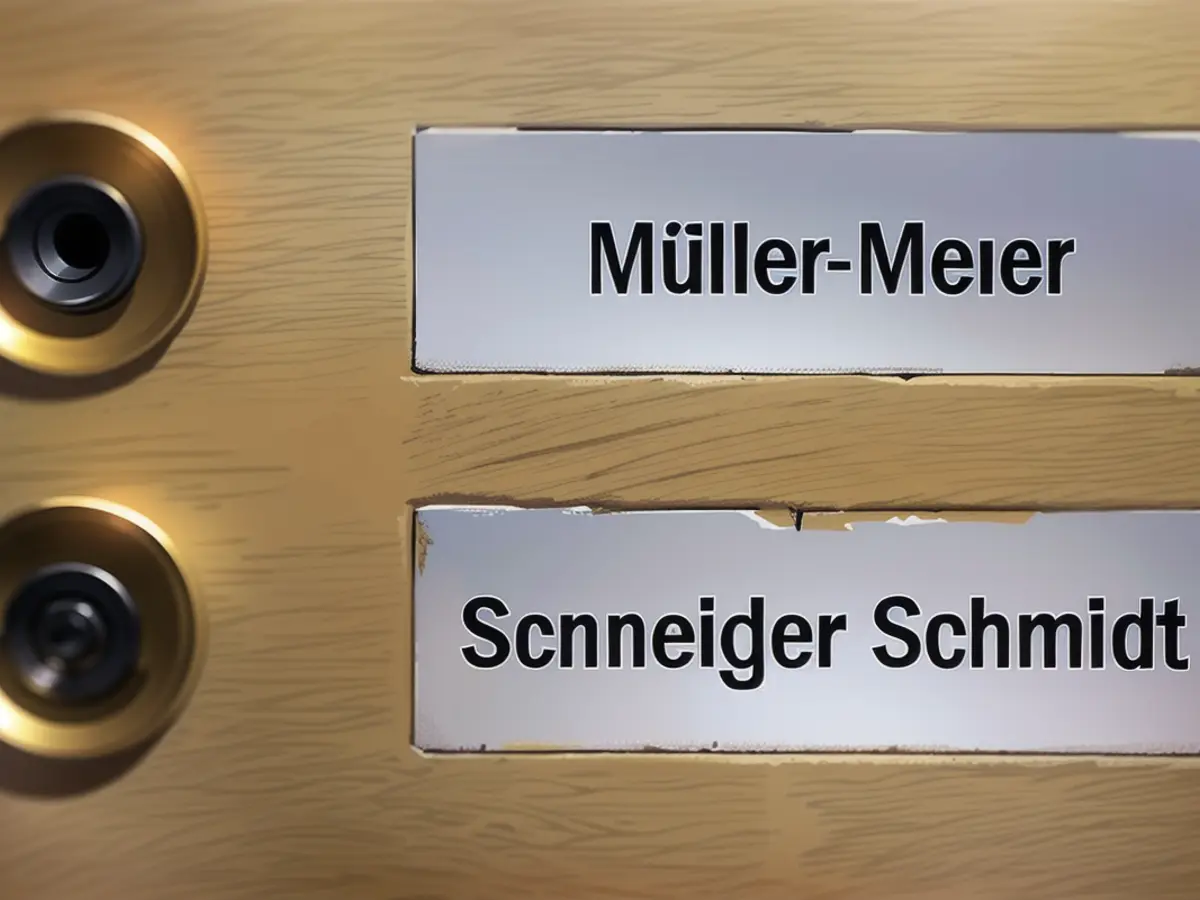Spouses have increased flexibility in selecting a name.
Beginning May 1, 2025, individuals will have more flexibility in choosing their surnames. The recent legislation aims to strengthen ties to tradition and origin in personal names.
In the future, married couples and their offspring will have increased options when selecting their surname. The newly passed law allows for double surnames to be used as family names.
The government hopes this change will modernize the existing German naming law, which has been strict compared to other countries. With the option of having a combined surname, couples will no longer need to choose just one surname for their family. This name could even become the birth name of their child, with the names typically linked by a hyphen.
Beforehand, if a spouse's surname wasn't selected as the family name, they could still use their previous name in conjunction with the family name. However, it was not formally part of the surname.
Naming changes upon reaching adulthood and divorce
Starting May 1, 2025, it should also become simpler for children from married couples to change their surname if their parents divorce. Both minors and adults should be able to choose the name of the parent they live with most often or opt for the other parent's name. Previously, this process required significant obstacles.
Moving forward, parents will also be allowed to assign their children a surname consisting of both parents' family names. Divorced children and stepchildren may adopt a name change from their mother or father. Meanwhile, adult children can switch from their current parent's surname to the other parent's surname.
The law also considers specific naming customs of ethnic minorities. The Sorbian people, for instance, can attach the suffixes "-owa" and "-ina" to female names in their culture.
The Frisian community is provided with new opportunities to reflect their traditions and origins in derived names. For example, the surname "Jansen" can be used if the father's given name is "Jan." Naming in the Danish tradition, which considers surnames based on relatives, is also a possibility. Contrarily, female names can now be considered as a start point. Federal Democratic Party's legal politician Katrin Helling-Plahr praised the decision, stating, "The path is clear for a more liberal naming law."
Read also:
- Year of climate records: extreme is the new normal
- Precautionary arrests show Islamist terror threat
- UN vote urges Israel to ceasefire
- SPD rules out budget resolution before the end of the year
Source: www.ntv.de






